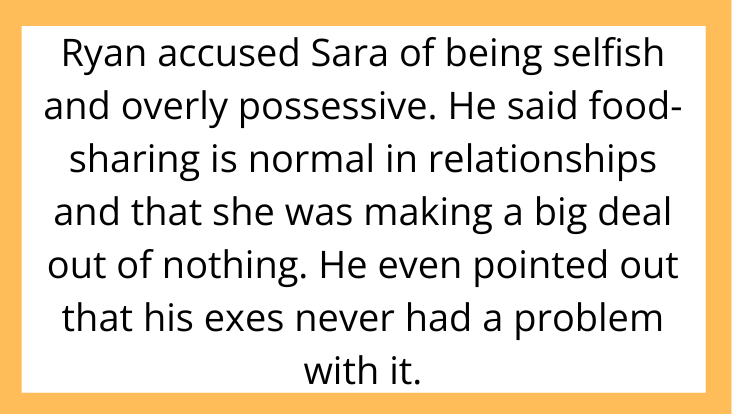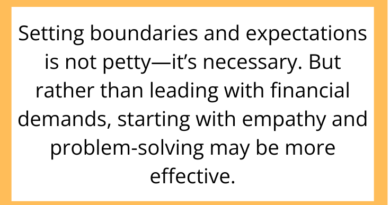AITAH for Not Letting My Boyfriend Eat Off My Plate When We Go Out?
It sounds like a small thing—sharing food with your partner. But when habits start clashing with personal boundaries, even something as simple as a forkful of fries can spark a relationship debate. In today’s blog post inspired by a real AITAH Reddit thread, we explore whether refusing to share your meal makes you rude—or reasonable.
Let’s dish it out.
The Story: One Plate, Two Opinions
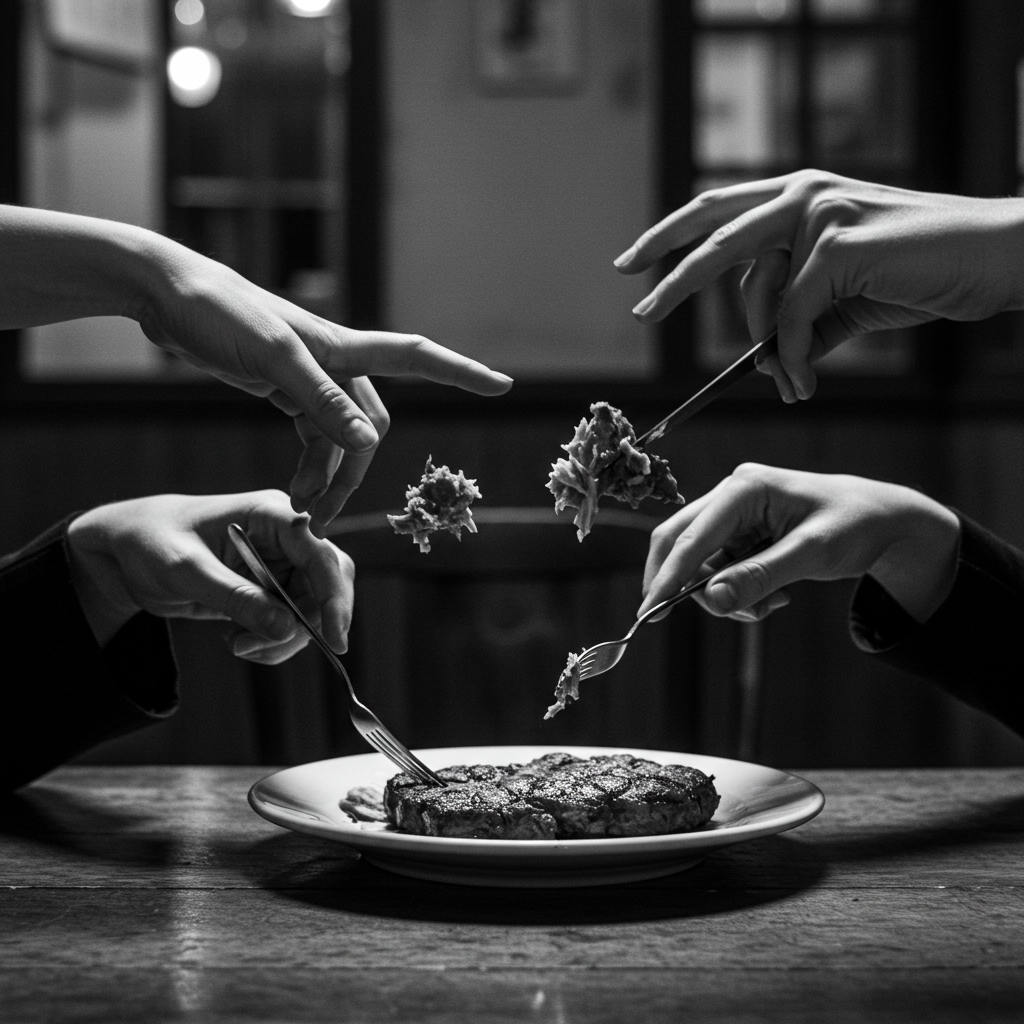
A 26-year-old woman—we’ll call her Sara—posted to the r/AITAH subreddit about a recurring argument with her boyfriend, Ryan, 28. Every time they go out to eat, Ryan insists on trying food from her plate, even after she asks him not to.
It started off playful. At first, he’d ask for “just a bite.” Then it became routine—he’d wait until her food arrived, skip ordering something he really wanted, and dive into hers. Sara finally told him she was uncomfortable with it and asked him to stop.
Ryan didn’t take it well.
“It’s Just Food—Why Are You So Weird About It?”

Ryan accused Sara of being selfish and overly possessive. He said food-sharing is normal in relationships and that she was making a big deal out of nothing. He even pointed out that his exes never had a problem with it.
Sara tried to explain that she grew up in a house where food was treated with strict boundaries—everyone had their own plate, and asking before taking was non-negotiable. For her, having her meal respected was a matter of comfort and personal space.
Still, the conflict escalated. Ryan now jokes about it in front of friends, saying things like, “Don’t touch Sara’s food or she’ll file a lawsuit.” He claims he’s “just teasing,” but Sara feels humiliated and dismissed.
So she asked Reddit: AITAH for not letting my boyfriend eat off my plate when we go out to eat?
Personal Boundaries Aren’t Petty
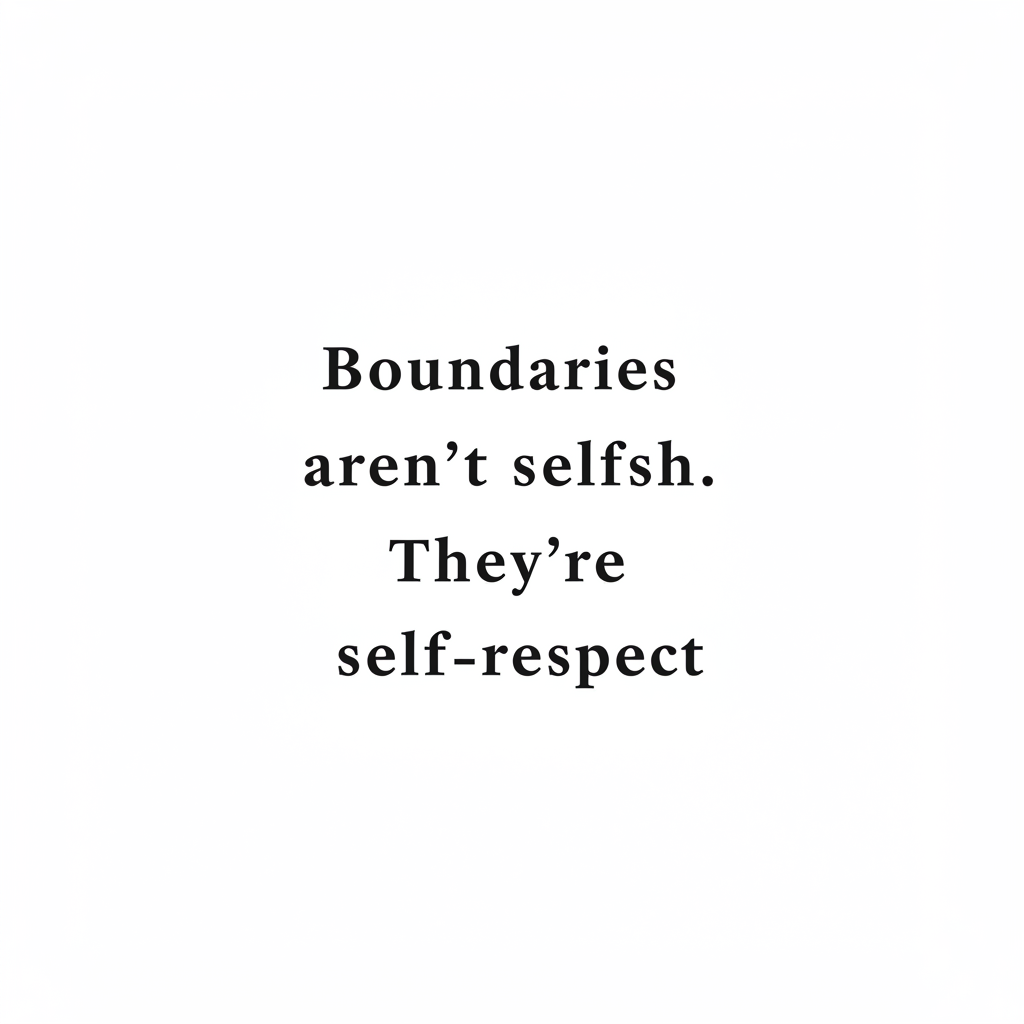
The Case for Sara: It’s About Consent, Not Calories
Boundaries look different for everyone. For some, sharing food is a love language. For others, it’s intrusive. Sara’s stance isn’t about being stingy—it’s about autonomy and respect.
She communicated her discomfort clearly. That should’ve been the end of it.
The issue isn’t about food. It’s about agency. When someone continues to cross a line you’ve clearly drawn, they’re not sharing—they’re disregarding your comfort.
The Case for Ryan: Cultural Norm or Control?
In many relationships, sharing meals is an unspoken sign of closeness. Ryan may have genuinely grown up with different norms—maybe in his family or past relationships, communal eating was the default.
He might not realize that what feels like affection to him can feel like boundary-breaking to someone else.
Still, joking about it and comparing Sara to his exes isn’t the way to solve the problem—it’s a way to avoid it.
Reddit’s Verdict: Not the Villain
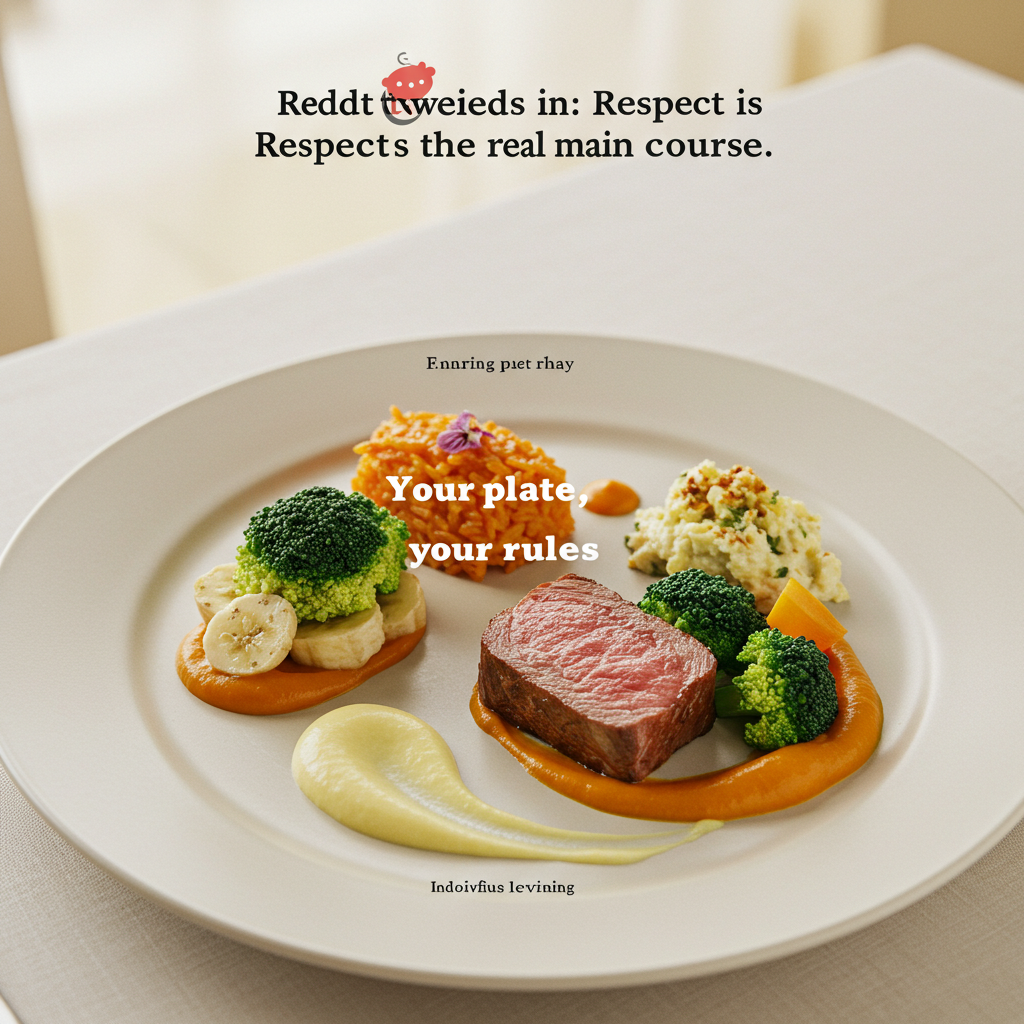
The overwhelming consensus? Sara is not the villain here.
“Your plate, your rules,” wrote one commenter. “It’s not about the food—it’s about him not listening.”
Others pointed out that mocking someone for enforcing a boundary is emotional manipulation, not light teasing. Many encouraged Sara to reflect on whether this behavior showed a deeper disregard for her comfort and needs.
A few users, though, offered nuance. “If it’s a dealbreaker for him, and a hard boundary for you, maybe you’re just not compatible.”
When Small Fights Reveal Big Problems
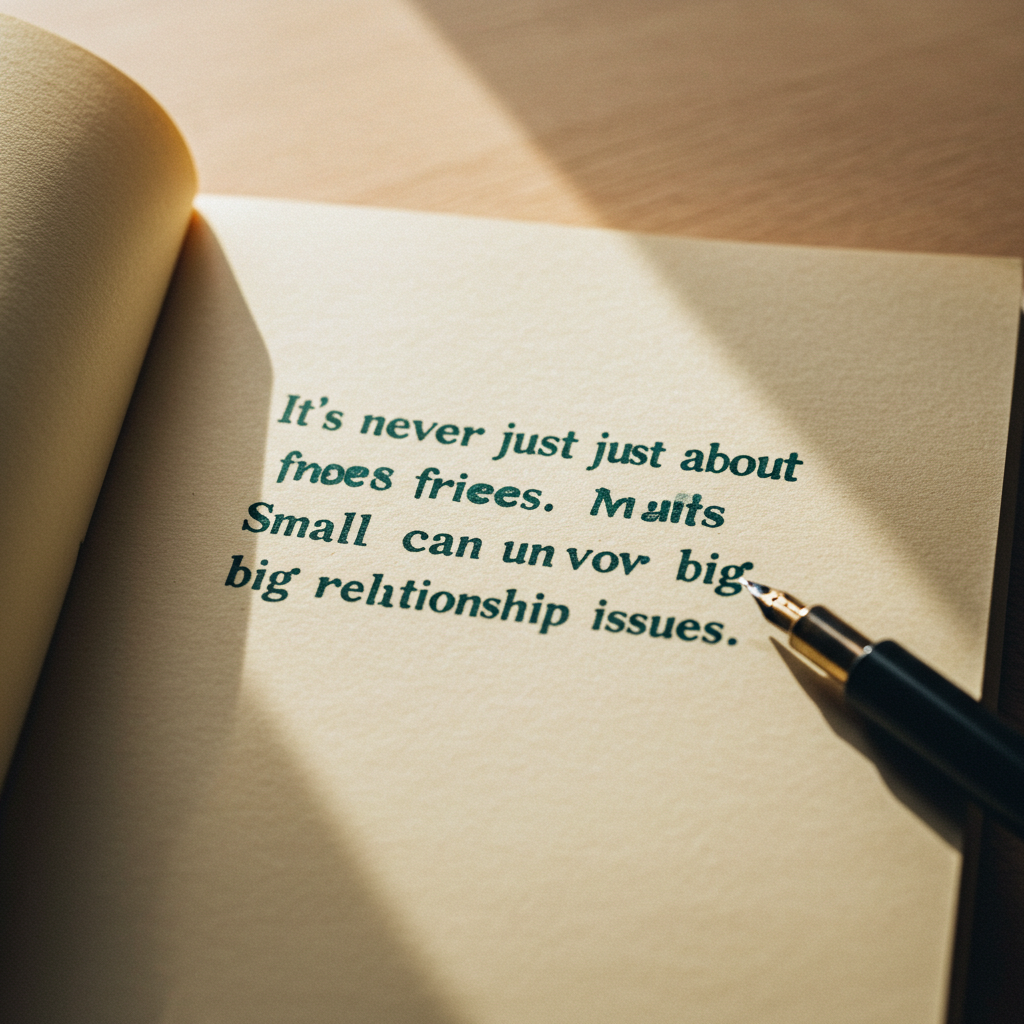
On the surface, this sounds like a petty issue. But dig deeper, and you’ll see the cracks that can threaten any relationship:
-
Disrespecting boundaries.
-
Dismissing concerns as “not a big deal.”
-
Using humor to deflect accountability.
These behaviors, when repeated, become patterns. And they don’t stop with food.
Communication Tips for Dealing with Boundary Conflicts

1. Speak in “I” Statements
Instead of accusing (“You always steal my food”), say: “I feel uncomfortable when someone eats off my plate. It’s something I’m sensitive about.”
2. Set Clear Expectations
Boundaries should be clearly communicated—early and often. Don’t assume your partner knows.
3. Compromise (If Possible)
Could Sara offer to share an appetizer instead? Could Ryan agree not to touch her entrée? If both sides are willing, a middle ground can usually be found.
4. Recognize Patterns
If one partner constantly pushes the other’s boundaries, it’s not about food—it’s about respect.
Final Thoughts: Respect Tastes Better Than a Bite
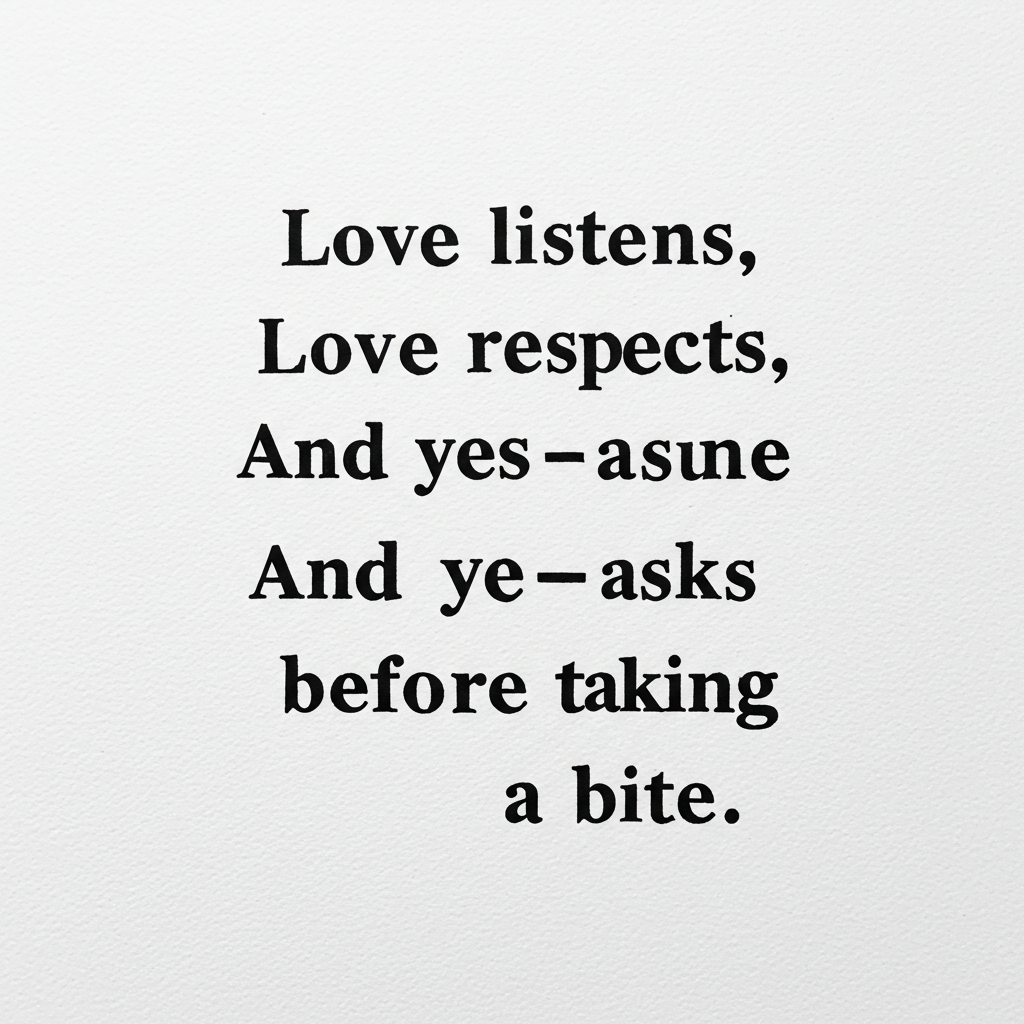
Sara’s story reminds us that the little things—sharing fries, teasing at dinner—aren’t always so little. When someone tells you what makes them uncomfortable, listen. Respect it. Even if you don’t fully understand it.
Because in the end, love isn’t about taking bites off someone’s plate—it’s about making space for what matters to them.
